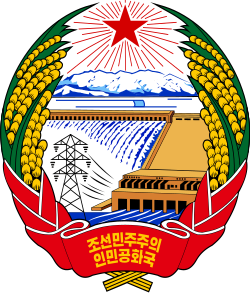| |||||||||||||||||||||
All 215 seats in the Supreme People's Assembly | |||||||||||||||||||||
|---|---|---|---|---|---|---|---|---|---|---|---|---|---|---|---|---|---|---|---|---|---|
| Turnout | 99.99% | ||||||||||||||||||||
This lists parties that won seats. See the complete results below.
| |||||||||||||||||||||
 |
|---|
Parliamentary elections were held in North Korea on 27 August 1957 to elect members of the 2nd Supreme People's Assembly. Voters were presented with a single list from the Democratic Front for the Reunification of the Fatherland, dominated by the Workers' Party of Korea.
Contents
- Results
- Composition of deputies
- Pyongyang city
- South Pyongan
- North Pyongan
- Chagang
- South Hwanghae
- North Hwanghae
- Kangwon
- South Hamgyong
- North Hamgyong
- Ryanggang
- Kaesong city
- References
Only one candidate was presented in each constituency, all of which were selected by the WPK, although some ran under the banner of other parties or state organisations to give the illusion of democracy. [1] Voter turnout was reported to be 99.99%, with 99.92% reportedly voting in favour of the candidates presented. [2]
Its first session took place on 18–20 September 1957. One of its declarations was "On the Immediate Tasks of the People's Power in Socialist Construction".
